D C &
advertisement
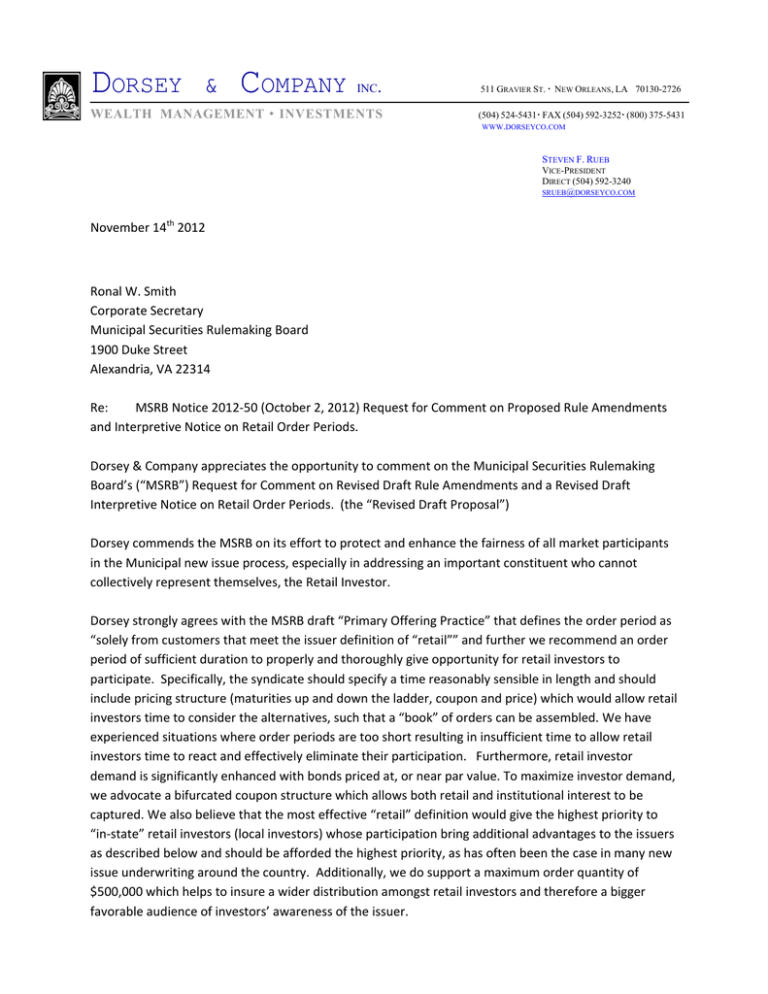
DORSEY & COMPANY INC. WEALTH MANAGEMENT INVESTMENTS 511 GRAVIER ST. NEW ORLEANS, LA 70130-2726 (504) 524-5431 FAX (504) 592-3252 (800) 375-5431 WWW.DORSEYCO.COM STEVEN F. RUEB VICE-PRESIDENT DIRECT (504) 592-3240 SRUEB@DORSEYCO.COM November 14th 2012 Ronal W. Smith Corporate Secretary Municipal Securities Rulemaking Board 1900 Duke Street Alexandria, VA 22314 Re: MSRB Notice 2012‐50 (October 2, 2012) Request for Comment on Proposed Rule Amendments and Interpretive Notice on Retail Order Periods. Dorsey & Company appreciates the opportunity to comment on the Municipal Securities Rulemaking Board’s (“MSRB”) Request for Comment on Revised Draft Rule Amendments and a Revised Draft Interpretive Notice on Retail Order Periods. (the “Revised Draft Proposal”) Dorsey commends the MSRB on its effort to protect and enhance the fairness of all market participants in the Municipal new issue process, especially in addressing an important constituent who cannot collectively represent themselves, the Retail Investor. Dorsey strongly agrees with the MSRB draft “Primary Offering Practice” that defines the order period as “solely from customers that meet the issuer definition of “retail”” and further we recommend an order period of sufficient duration to properly and thoroughly give opportunity for retail investors to participate. Specifically, the syndicate should specify a time reasonably sensible in length and should include pricing structure (maturities up and down the ladder, coupon and price) which would allow retail investors time to consider the alternatives, such that a “book” of orders can be assembled. We have experienced situations where order periods are too short resulting in insufficient time to allow retail investors time to react and effectively eliminate their participation. Furthermore, retail investor demand is significantly enhanced with bonds priced at, or near par value. To maximize investor demand, we advocate a bifurcated coupon structure which allows both retail and institutional interest to be captured. We also believe that the most effective “retail” definition would give the highest priority to “in‐state” retail investors (local investors) whose participation bring additional advantages to the issuers as described below and should be afforded the highest priority, as has often been the case in many new issue underwriting around the country. Additionally, we do support a maximum order quantity of $500,000 which helps to insure a wider distribution amongst retail investors and therefore a bigger favorable audience of investors’ awareness of the issuer. Dorsey’s experience is that with these requisite features, many individual retail investors prefer participation in new issues over indirect ownership. Individual retail investors have reiterated time and again their preference as to specific issuers, select maturities and a desire to avoid the added cost associated with indirect ownership. We have further experienced strong retail demand at less price (yield) sensitivity given a sufficient marketing period with bonds priced at or near par value which resulted in lower borrowing cost to the issuer, an outcome that should be welcomed by the issuer and underwriters alike. Competition and transparency always add to market integrity. Retail Investor = more competition Increased demand=lower interest costs to issuer Order period pricing, duration and structure = greater transparency & access While the MSRB has indicated that it will leave the definition of “retail” to the determination of an issuer, Dorsey strongly advocates that a standard retail investor definition be established giving highest priority to “local retail”. As an example Louisiana ACT 444 has provided definition; [“Louisiana retail purchase” shall mean a direct purchase by an individual resident of Louisiana or a company domiciled in Louisiana or a trust department, investment advisor, or money manager acting on behalf of a resident of Louisiana or a company domiciled in Louisiana and shall not include a purchase by an institutional customer.] Furthermore, allowing individual taxpayer’s preferential access to the local public debt their tax dollars support would seem fundamentally sound. In our 50 years of underwriting local municipal issues around our state, we have seen that in‐state retail investors (who are very often influential members of the community) will step forward to purchase their local communities’ debt when they have an opportunity to participate as a purchaser and where the underwriter has time to inform them and provide access to the bonds. These local constituents who have a stake in their communities become informed supporters of the financing priorities of their communities, and then tend to be significantly more loyal investors than institutions during times of financial stress. Finally, access would provide market protection from large, influential institutions who may attempt to dominate access to new issues in the public market in order to advance their agenda. Dorsey supports and reaffirms the required disclosure of zip codes for retail priority as adequate and ought to be adopted as industry standard practice. We thank you for the opportunity to address our concerns regarding the Revised Draft Proposal. If you have any questions or would like any additional information, please contact me at 504 524‐5431. Regards, Steven Rueb Vice President Dorsey & Company, Inc.

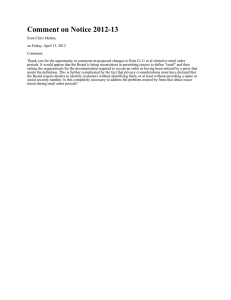
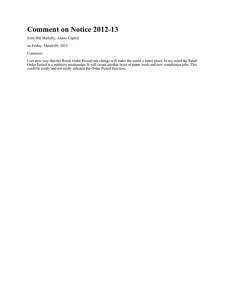
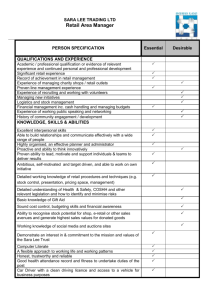
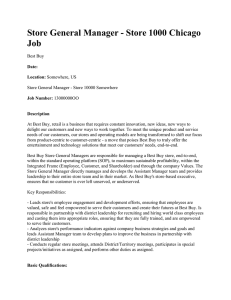


![[Company Name]](http://s3.studylib.net/store/data/009539562_1-20bba15a42c559f6e2eb5e3c0022265d-300x300.png)